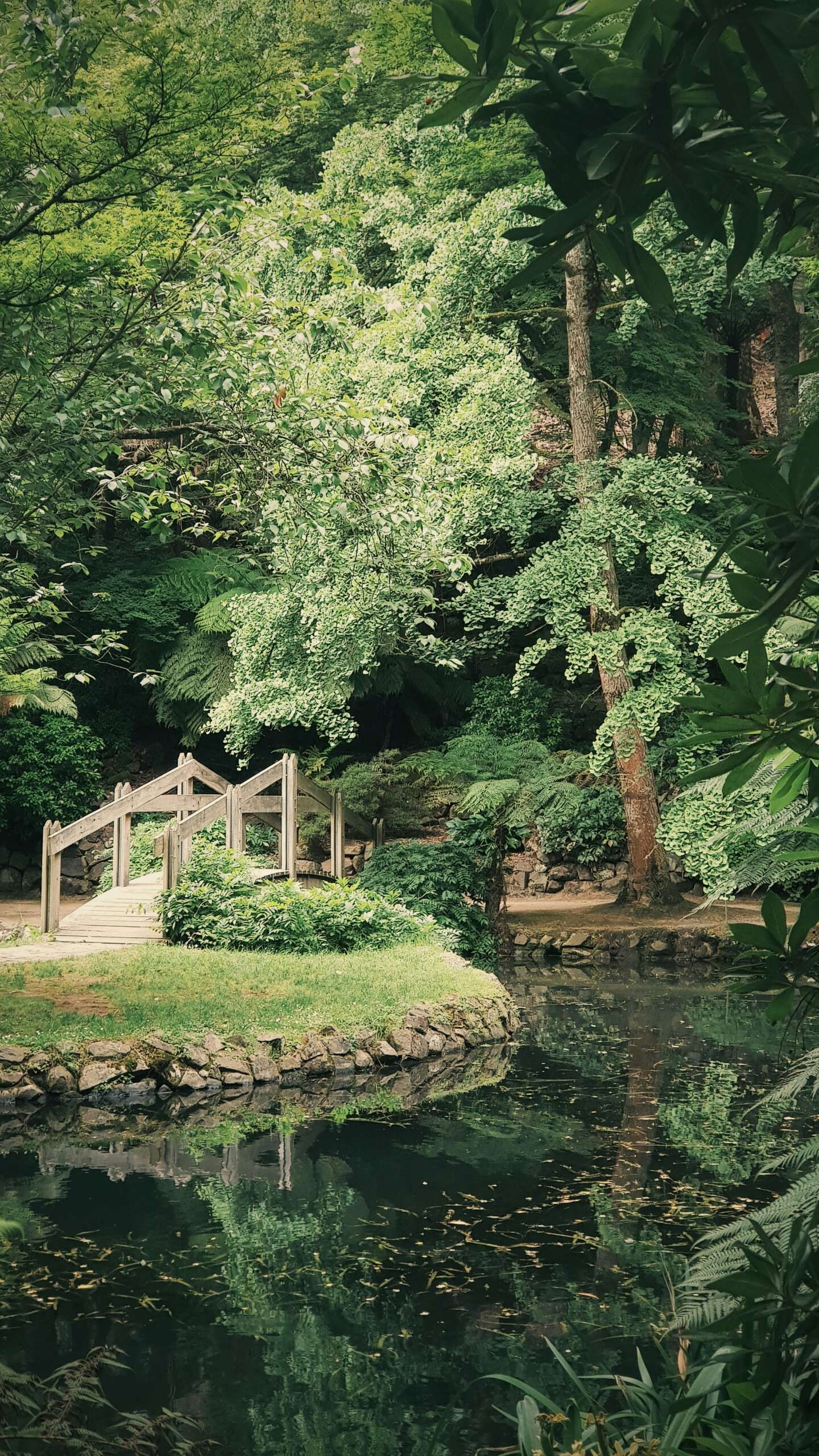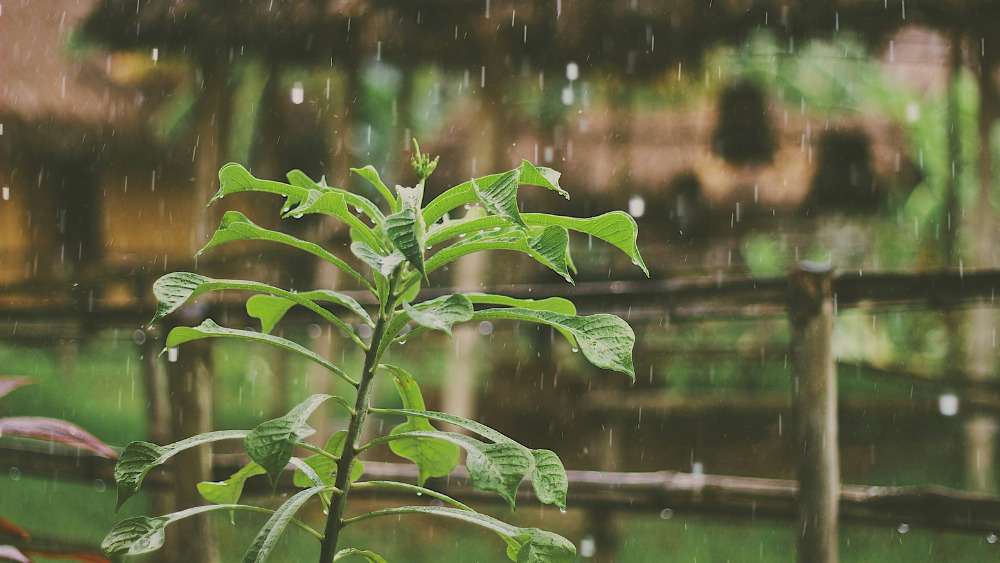In the last of a three-part series of articles for Eternity, World Vision adviser and reforestation pioneer Tony Rinaudo ponders why it is so rare to hear words of righteous anger at the destruction of God’s creation coming from our pulpits or the Christian on the street.
I wonder what was going through God’s and the angels’ minds at the time of creation. The “I” in Proverbs 8:30 is wisdom talking in the first person, where wisdom is a type or prefiguration of Christ. In effect, Jesus was delighting in mankind and rejoicing in his creation (Prov. 8:30-31).
God tells Job that as the earth’s foundations were being laid, “the morning stars sang together and all the angels shouted for joy” (Job 38:7). When you consider that there are “ten thousand times ten thousand” angels (Rev. 5:11) – that is, a numberless host – the sound must have been deafening. Clearly, the response in heaven to God’s act of creation was not to hold a sedate garden tea party. The picture painted here aligns more with the unbridled joy of the end of football season: back-slapping and foot-stomping all-out victory celebration.
Why is it so rare to hear words of righteous anger at the destruction of God’s creation coming from our pulpits or the Christian on the street?
I wonder how God and the angels feel when they look at the state of creation today and see how humanity is trashing it. What is going through their minds? I certainly don’t think the angels are shouting for joy! And where are the people of God in all this?
Not only are we all too often silent about the destruction (both random and systematic) of God’s wonderful creation; for most of us, our lifestyle, our profligate waste and toxic pollution, and our investments often support its destruction. Why is it so rare to hear words of righteous anger at the destruction of God’s creation coming from our pulpits or the Christian on the street?
Christians should care for creation because creation belongs to God and is important to him.
Why should Christians care for God’s creation?
“Is the health of birds, plants, soil, watersheds, forests, air and the earth’s atmosphere too worldly or mundane to merit the attention of faithful disciples? For John Stott, active care for the Earth and all its inhabitants is not a special domain for some believers interested in nature; it is integral to the normal life of Christian discipleship. Creation care matters because ‘God intends . . . our care of the creation to reflect our love for the Creator.’”[1]
First, Christians should care for creation because creation belongs to God and is important to him. The 2010 Lausanne Congress on World Evangelisation report, The Cape Town Commitment, contains this statement: “’The earth is the Lord’s and everything in it.’ The earth is the property of the God we claim to love and obey. We care for the earth, most simply, because it belongs to the one whom we call Lord.”[2]
Why would the God who has the power to speak things into being bother to plant a garden?
The importance of creation to God is symbolically suggested in Genesis 1 and 2. The term “God said” occurs nine times. “And God said, ‘Let there be light’” (Gen. 1:3); “and God said, ‘Let there be a vault between the waters to separate water from water’” (Gen. 1:6), and so on. Curiously, Genesis 2:8 says, “And the LORD God planted a garden in Eden” (RSV).
Why would the God who has the power to speak things into being bother to plant a garden? What is the significance? When you plant a garden, it involves all of yourself. You develop a very special relationship with the soil, plants, and animals in your garden. You give and you receive in return. You do not plant and look after a garden if you don’t care about gardens. Those who don’t care about gardens grudgingly pay someone else to do it or simply buy their vegetables at the store.

This passage suggests to me that if God himself, creator of heaven and earth, thought it important enough to plant a garden, we as his followers should, at the very least, value and care for his creation. A creation that, post-Fall, is in grave danger of being destroyed unless humans intervene.
John Stott writes, “Christian people should surely have been in the vanguard of the movement for environmental responsibility because of our doctrines of creation and stewardship. Did God make the world? Does he sustain it? Has he committed its resources to our care? His personal concern for his own creation should be sufficient to inspire us to be equally concerned.”[3] Further, in a forward to The Care of Creation, Stott writes that “our care of creation will reflect our love of the creator.”[4]
Surely it is imperative that Christians be at the forefront of environmental protection and restorative action.
Second, knowing that environmental destruction leads to human suffering, we care for creation as an act of love towards our neighbour and, incidentally, towards ourselves since we are not immune to the impacts of environmental destruction. With the knowledge that through environmental restoration, we can reduce hunger, lift people out of poverty, and reduce the risks of environmental disasters, surely it is imperative that Christians be at the forefront of environmental protection and restorative action. Such actions, depending on the context, increase the availability and quality of food and water, reduce the likelihood and impact of severe storms, landslides, floods, and drought, and both mitigate against and help people adapt to climate change. People living near healthy, functioning ecosystems tend to have more livelihood options and are more resilient to climatic shocks and natural disasters. In this light, loving our neighbour as ourselves is inseparable from caring for creation.
Third, in that God deemed all he made very good (Gen. 1:31), we care for creation because it is intrinsically good. Creation has value in its own right, apart from economic or functional value. The sheer beauty, intricacy, variety, interconnectedness, and wonder of creation is reason enough to care for it.
Could it be that by partaking in creation stewardship and restoration, we experience a foretaste of heaven on earth?
Fourth, the Earth, albeit a renewed Earth, will be our home for eternity. Theologian David Bookless writes: “A balanced biblical understanding recognises that God’s judgment of all that is fallen, evil and sinful will mean a radical cleansing of the whole creation, but that God’s saving love towards all he has made will eventually lead to the remaking, reshaping and renewal of creation.”[5] Bookless continues, “the ‘new heavens and new earth’ referred to by Peter (2 Pet. 3:13) or the book of Revelation (Rev. 21:1) do not necessarily imply that the current universe is thrown on the scrap heap. Rather, they speak of the renewal of creation. Just as God is into recycling broken, spoiled, messed-up people and making them into new creations in Christ, so this whole damaged and groaning creation will be made new again.”[6] Just as we care for and maintain our own homes, surely we should take the same level of care for the only planet we know where life is possible.
Epilogue
While regreened landscapes are impressive, the biggest change I see is the restoration of hope in the people who live among them. Over the years, I’ve been privileged to visit many communities that have transformed their land and lives. In case after case, what had been a downward spiral of degradation, poverty and despair has been reversed into an upward spiral of restoration, relative prosperity and, most important, hope. Even as landscapes rehydrate, biodiversity returns and the productivity and resilience of the land increase, hope is restored. People who felt like hopeless victims of poverty and climate change, people who had given up, now have hope for a better future for themselves and their children. And along with that, their sense of pride and self-worth is restored. Invariably, I witness spontaneous outbursts of joy expressed in song, dancing, and clapping. Interestingly, this is very similar to the responses in heaven to the act of creation (rejoicing, shouting, singing)!
Could it be that by partaking in creation stewardship and restoration, we experience a foretaste of heaven on earth?
Tony Rinaudo AM has made his life’s work in the environmental and humanitarian spheres, focusing on forest and landscape restoration and helping farmers to become self-sufficient through natural farming approaches. He is World Vision’s Principal Climate Action Adviser, promoting reforestation initiatives globally. He has also been nominated for the 2024 Victorian of the Year.
[1] John Stott, The Radical Disciple: Some Neglected Aspects of Our Calling (Downers Grove, IL: IVP, 2010), 59, quoted in R. J. Berry with L. S. Meitzner Yoder, John Stott on Creation Care (London: IVP, 2021), 1.
[2] “The Cape Town Commitment,” Lausanne Movement, accessed Jan. 20, 2023, https://lausanne.org/content/ctc/ctcommitment.
[3] P. Harris, Under the Bright Wings (London: Hodder and Stoughton, 1993), 181-82.
[4] R. J. Berry, ed., The Care of Creation. Focusing Concern and Action (Leicester: IVP, 2000), 8-9.
[5] D. Bookless, Planet Wise: Dare to Care for God’s World (Nottingham: IVP, 2008), 146.
[6] Bookless, 80.


